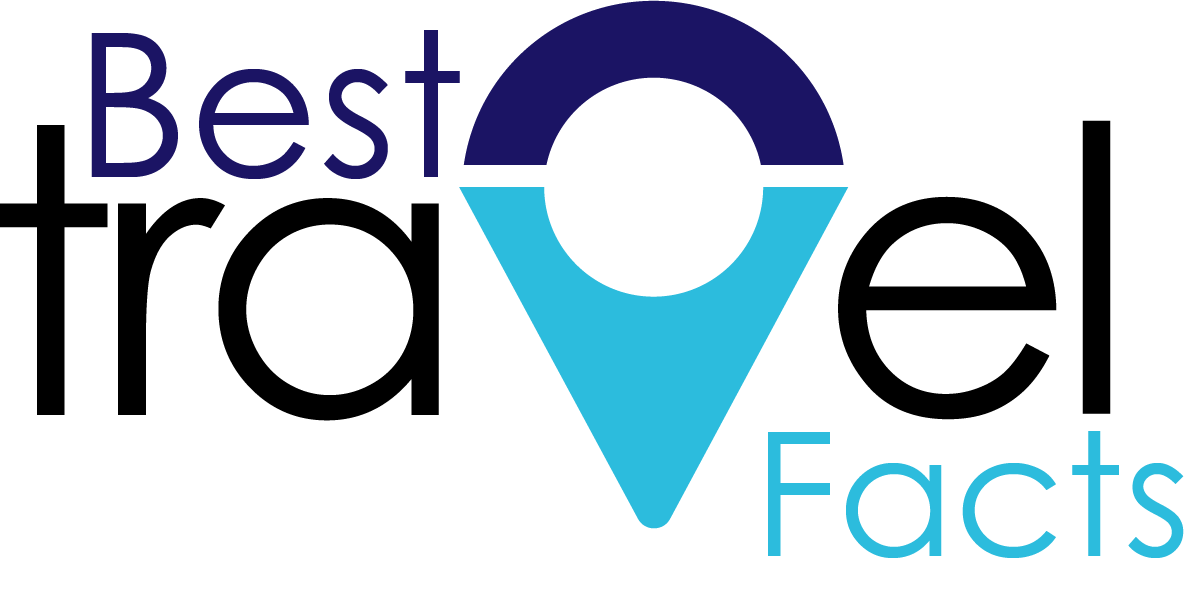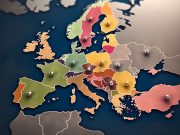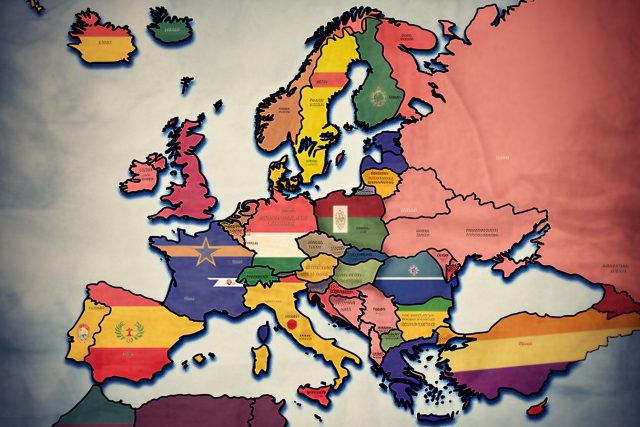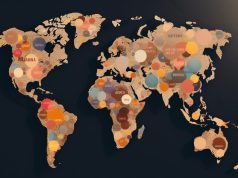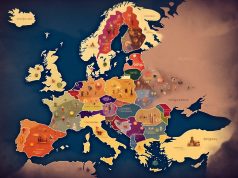With so many countries, cultures, and languages, Europe is an incredibly diverse continent. The question of what language Europeans speak has been debated by linguists for centuries. It’s time to answer this burning question once and for all: What language does Europe speak?
As a European language expert with decades of experience in the field, I can tell you that there is no single language spoken across the entire continent. Instead, each nation has its own unique tongue which provides a way for people to express their culture and identity. But despite having different native tongues, freedom-loving Europeans have still found ways to communicate with one another—through dialects derived from multiple languages!
Native Languages In Europe
Europe is a unique continent in terms of language diversity. With over 230 native languages, multilingualism has been part and parcel of European culture for centuries. In fact, it’s estimated that about one-third of Europeans speak two or more languages fluently. This remarkable linguistic variety has created countless opportunities for cultural exchange and understanding, but also presents certain language barriers to those who may not be as well versed with multiple tongues.
European countries are home to many distinct dialects that have developed throughout the ages due to geographical isolation, immigration history, and even varying levels of education. Regional accents often vary quite drastically from place to place and this can lead to difficulties when attempting to communicate across borders. Social media platforms like Twitter are increasingly being used by companies as a way of overcoming these challenges through translation services and applications designed specifically for multilingual users.
These digital tools offer an invaluable resource both within Europe and beyond its boundaries – providing access to information previously unavailable due to language constraints. As such, they are helping to break down long-standing linguistic divides between nations while promoting greater unity among Europeans. To move forward in our understanding of regional dialects across the continent, we must continue exploring innovative ways technology can bridge communication gaps.
Dialects Across The Continent
Europe is a stunningly diverse continent, and it’s multilingualism reflects this richness. Language has always been intertwined with culture, so different countries have their own unique dialects that help define them. Just as the landscape of Europe changes from country to country, each language carries its own set of nuances and characteristics.
Language learning can be incredibly rewarding for those who take on the challenge. It allows one to gain insight into other cultures and better understand how people communicate around the world. Many Europeans are highly proficient in multiple languages, making communication between people easier than ever before. And while some may cling stubbornly to their native tongue, others embrace foreign words and expressions with open arms.
The range of popular European languages stretches far beyond English; many locals speak two or even three languages fluently! With such an array of linguistic options available, it can feel exciting yet daunting to try something new – but there’s nothing quite like being able to express yourself using another language! From Spanish and Italian to German and French (among others!), venturing into unfamiliar territory can bring a sense of freedom unlike any other.
Popular European Languages
Europe is a diverse continent with many languages spoken. The most commonly spoken language in Europe is German, followed by French, Spanish and Italian. However, there are also numerous other immigrant languages that have been preserved over the centuries, many of which are still widely used today.
These include Turkish, Russian, Romanian, Greek and Polish among others. Most European states recognize multiple official languages to ensure all citizens can participate in their country’s culture and politics regardless of mother tongue. This allows each region to celebrate its unique linguistic heritage while continuing to foster cultural unity on a national level.
Language preservation across Europe has created an incredible diversity of dialects within countries as well as between them; something which adds tremendous richness and depth to life for those who live here. As such it is important we continue supporting efforts to promote multilingualism so that our descendants may one day benefit from this amazing gift too. With this in mind let us now consider the differences between regional and international languages.
Differences Between Regional And International Languages
Europe is a melting pot of languages, with many different regional and international varieties spoken across the continent. International exchanges are now commonplace in Europe, making it necessary for individuals to have multiple language skills in order to communicate effectively. As such, language barriers can often be problematic when travelling or working abroad.
Languages like English, French, German, Spanish and Italian are considered as ‘international’ or ‘universal’ languages due to their widespread use throughout Europe and beyond. These languages may not always be natively spoken by all Europeans but they enable communication between countries that would otherwise struggle to understand each other’s dialects and accents. This helps foster collaboration on an international level and encourages cultural understanding through shared language experiences.
Although there has been much progress towards unifying European nations through the adoption of common languages, there will always remain certain nuances which distinguish one culture from another. This allows for unique expressions of thought within various communities whilst also connecting them together through mutual comprehension. Moving forward, having a good grasp of both regional and international languages is key if we wish to continue fostering social connections at home and abroad alike.
The Impact Of Language Unification On Europe
The impact of language unification on Europe is one that should be examined with a careful eye. Language barriers can have drastic effects on communication, commerce, and even culture within countries. Despite this obvious detriment to cross-border relations, the idea of one unified language has been gaining traction in recent years as it is seen by many as a way to bring Europeans closer together.
However, there are some compelling arguments which suggest the opposite effect could take place if this approach were taken. The loss of linguistic diversity would come at an immense cultural cost; countless different dialects and expressions unique to each region would become lost or marginalized in favor of a single “European” tongue. This could lead to resentment among those who feel their native languages are being devalued or forgotten altogether. Furthermore, such an endeavor may also affect how people view themselves and others from other parts of the continent; essential national identities could be threatened due to homogenization caused by a lack of regional differentiation between languages.
Therefore, it is important for European nations to consider all sides before attempting any sort of comprehensive language unification effort. While having just one official language might make day-to-day life easier for citizens traveling across borders, its potential long-term consequences should not be overlooked when weighing the pros and cons associated with such an undertaking. As much as possible must be done to protect against losing what makes each nation’s culture so vibrant: its distinct use and appreciation of language.
Frequently Asked Questions
What Are The Most Commonly Spoken Languages In Europe?
Europe is a place where multilingualism and language acquisition are celebrated. With many nations, cultures, and languages, it can be difficult to determine which languages are the most commonly spoken throughout this incredible continent. From French in France to German in Germany, English in the United Kingdom, Spanish in Spain and Italian in Italy – these five popular languages dominate Europe’s linguistic landscape. Additionally, there are countless regional dialects with distinct traditions that bring their own flavor of culture to Europe’s diverse population. Whether you’re traveling or living abroad, learning one of these common languages will certainly open doors for understanding between people from all walks of life!
How Do Europeans Learn New Languages?
Learning a language in Europe is an incredible experience. With the abundance of cultural immersion opportunities and language exchanges available, Europeans have ample opportunity to become bilingual or even multilingual! Language exchange programs offer a unique learning style that combines real-life conversations with native speakers and more traditional teaching methods, making it easier for learners to pick up new languages quickly. Cultural immersion provides another exciting way for Europeans to learn about different cultures while also picking up on their respective languages. There’s no better way to gain freedom than by being able to communicate with people from all around the world!
How Has The European Union Influenced Language In Europe?
The European Union has had an immense effect on language diversity and multilingual education in Europe. Studies show that over half of all people living in the EU are able to communicate in two or more languages, a number that is constantly increasing due to government initiatives such as the Erasmus project, which encourages student exchange between member states and helps foster intercultural dialogue. Additionally, EU legislation protects minority languages from extinction by guaranteeing their status within each state, allowing them to be taught in schools and used for official purposes. This emphasis on linguistic variety makes Europe an incredibly diverse region where citizens can feel free to express themselves through whichever language they choose.
How Can Language Barriers Be Overcome In Europe?
Language barriers can be overcome in Europe through cultural exchange and intercultural communication. By developing a deeper understanding of the language, culture, history, and customs of each European nation, we can create an environment where all languages are accepted and respected. Through engaging activities such as international trips, language classes, and student exchanges, Europeans can learn to communicate more effectively across national boundaries. This not only helps bridge linguistic divides but also fosters greater peace and freedom among nations.
How Has Immigration Affected The Languages Spoken In Europe?
Immigration has had a huge impact on the languages spoken in Europe. With an influx of immigrant dialects, there is now a much greater diversity of language than ever before. This means that communication barriers have been broken down between different cultures and communities. It’s also inspiring to see how new generations are able to create their own unique blend of language – it truly shows the power and potential of freedom!
Conclusion
In conclusion, Europe is a diverse and complex continent with many languages spoken. It can be difficult to keep track of the various languages that are being used throughout the region. However, it is estimated that around 55% of Europeans are multilingual and this number continues to grow as people learn new languages or move from one country to another. This gives us hope for a more unified Europe in which language barriers will become less of an issue. With advances in technology such as translation software and dedicated language learning apps, communication between different European countries has never been easier! We must continue to celebrate our unique linguistic heritage while also working towards greater unity in Europe.
